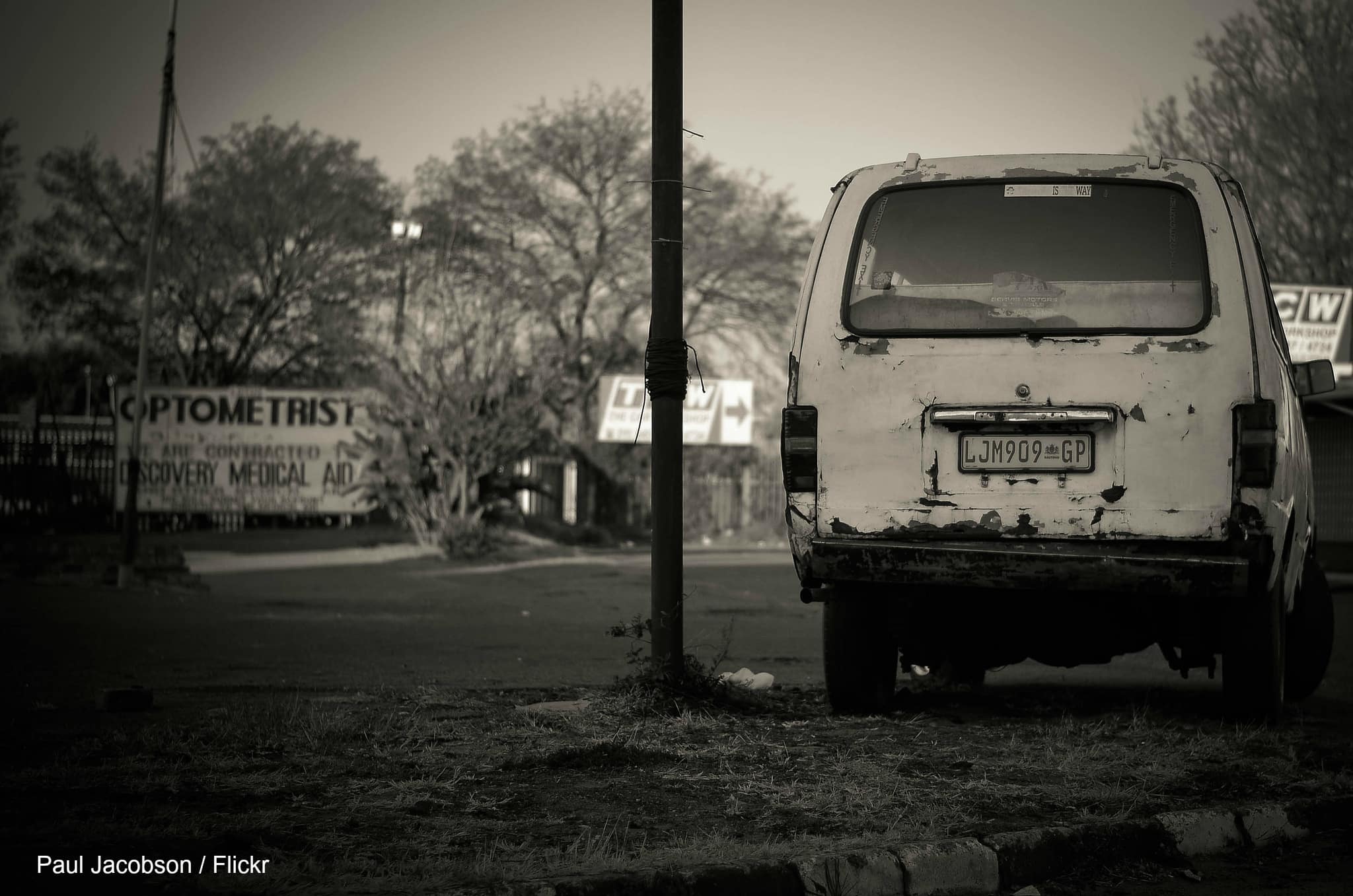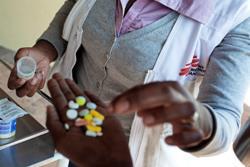Mpumalanga takes health screenings to commuters


In Msogwaba, the main taxi ranks is abuzz with commuters rushing to work, taxi drivers loading up taxis, and the hawkers that sell food and veggies to both. Working long hours, many who use the rank are often not able to visit their local health centre during working hours, which is why the Mpumalanga Department of Health recently brought health services to them.
When taxi driver Michael Nkosi wakes up at 3am, he faces a 16-hour day ahead of him shuttling commuters from Msogwaba to central Nelspruit.
“I can’t remember when was the last time I visited a clinic for a consultation,” he said. “Ever since I started driving a taxi, I don’t have time anymore – even for (something) as simple as getting condoms.”
“Even when I have flu or other sickness I can’t consult (with a doctor) because of the time,” said Nkosi, who added that this usually means he opts to self medicate with over-the-counter medicines. “I usually buy medication at Spar because it’s near the taxi rank.
“Honestly, it’s costly for a person like me because I am not earning a lot of money,” he added.
According to COSATU, half of all workers in South Africa earn about R3,000 a month or R75 per day. For workers like these, buying a pack of Panado tablets and cough syrup could mean cost them about a day’s wages when the flu hits, according to the Medicines Prices Registry.
That’s why Nkosi said he welcomed the province’s recent push for mobile health services at the rank. Partnering with local nongovernmental organisations, the provincial department of health recently set up a tent at the rank to provide outreach services including HIV counselling and testing as well as provision of contraceptives. A formal clinic is also planned for the commuter hub.
Pilot project takes pills closer to patients
Busisiwe Mhlongo runs a small stall selling food at the rank. Between being a mother of three and running her own small business, Mhlongo has struggled to keep up with not only her own health needs but also those of her children.
“With my business I must be at my selling spot at 4 am,” she told OurHealth. “I am always with my last born son, but still can’t find time to go for contraceptive services or take my son to the clinic for his appointment dates.”
[quote float= right]My new employer he doesn’t give me time to collect my ARVs and I recently defaulted”
“The last time I took him to the clinic for immunisations was when he was one year and six months of age, ever since I have never taken him to the clinic,” she added. “This scares me because I am aware of the illnesses he can contract by not being fully immunised.”
“At least today I received contraceptives,” she said.
Angie Mkasi who works at a shop near the rank and said she hoped that health workers could eventually supply chronic medication to those working at or near the tank.
“I was diagnosed with HIV three and half years back,” she said. “My last employer supported and encouraged me to adhere to my antiretrovirals (ARVs), but because my employer moved to another province I lost my job.
“My new employer he doesn’t give me time to collect my ARVs and I recently defaulted”, she said.
To ensure that patients on chronic medication like Mkasi do not miss a dose, the National Department of Health is currently piloting a Central Chronic Medicine Dispensing and Distribution Programme in National Health Insurance pilots in provinces such as Mpumalanga, KwaZulu-Natal and the Eastern Cape.
As part of this programme, three companies will be distributing chronic medications to pick up points outside of local clinics, including private pharmacies, that may be closer to patients or are open for longer hours. The programme aims to make collecting medications easier for patients while decongesting local clinics.
According to the Health Systems Trust, more than 210,000 patients in more than 600 health facilities had been registered in the programme as of August. The Department of Health aims to have 500, 000 patients collecting medicines through the programme by March 2016.
- Read more: Taxi drivers rave about outreach TB, HIV services
- Never miss a story. Subscribe to our free, weekly newsletter
Author
Republish this article
This work is licensed under a Creative Commons Attribution-NoDerivatives 4.0 International License.
Unless otherwise noted, you can republish our articles for free under a Creative Commons license. Here’s what you need to know:
You have to credit Health-e News. In the byline, we prefer “Author Name, Publication.” At the top of the text of your story, include a line that reads: “This story was originally published by Health-e News.” You must link the word “Health-e News” to the original URL of the story.
You must include all of the links from our story, including our newsletter sign up link.
If you use canonical metadata, please use the Health-e News URL. For more information about canonical metadata, click here.
You can’t edit our material, except to reflect relative changes in time, location and editorial style. (For example, “yesterday” can be changed to “last week”)
You have no rights to sell, license, syndicate, or otherwise represent yourself as the authorized owner of our material to any third parties. This means that you cannot actively publish or submit our work for syndication to third party platforms or apps like Apple News or Google News. Health-e News understands that publishers cannot fully control when certain third parties automatically summarise or crawl content from publishers’ own sites.
You can’t republish our material wholesale, or automatically; you need to select stories to be republished individually.
If you share republished stories on social media, we’d appreciate being tagged in your posts. You can find us on Twitter @HealthENews, Instagram @healthenews, and Facebook Health-e News Service.
You can grab HTML code for our stories easily. Click on the Creative Commons logo on our stories. You’ll find it with the other share buttons.
If you have any other questions, contact info@health-e.org.za.
Mpumalanga takes health screenings to commuters
by cynthiamaseko, Health-e News
August 20, 2015



